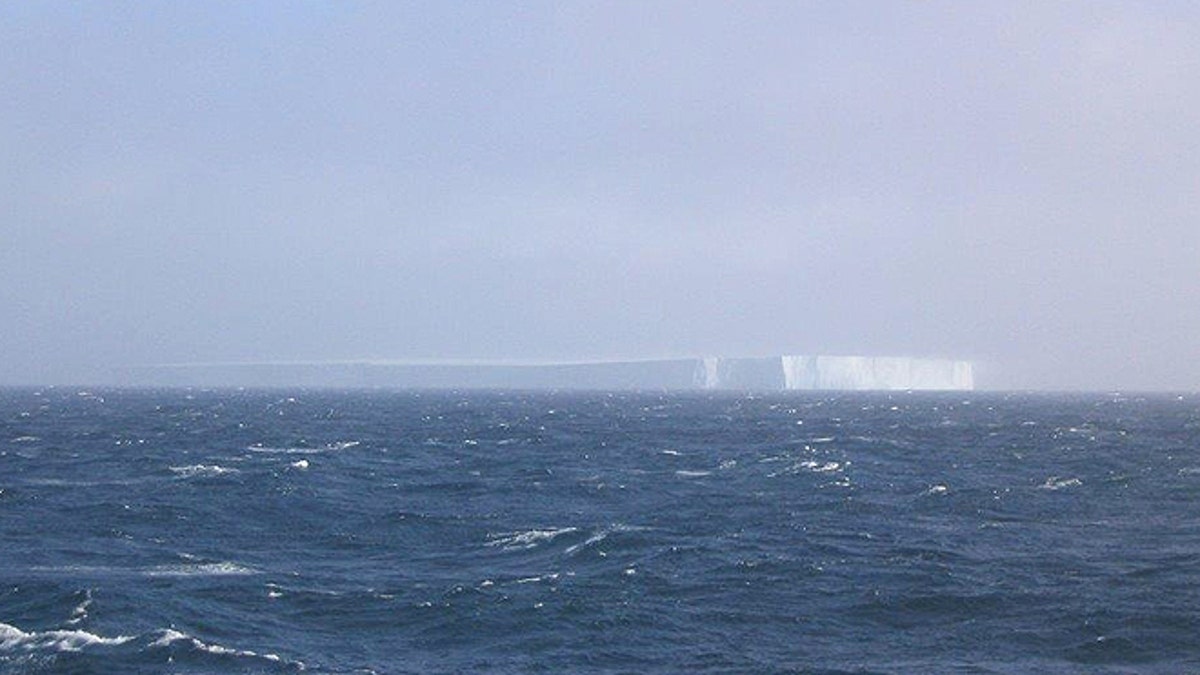
Melting icebergs make an underwater cacophony, new research shows. (Oregon State University)
In a world increasingly worried by man's affect on the planet, a new study by Oregon State University shows that icebergs can cause more of a racket than people.
In the polar regions, where the effects of climate change is seen first, the breakup, calving and grounding of icebergs can create enormous sound energy, according to scientists. The study is being published in this month’s Oceanography.
Using an array of hydrophones, a team of researchers tracked the sound produced by an iceberg, from its point of origin in the Weddell Sea to its eventual demise in the open ocean. They had set out to find the base levels of this kind of naturally occurring sound and compare it with the human-influenced noise, such those found through marine activities like shipping and oil exploration.
Your browser does not support the audio element.
Robert Dziak, the lead author of the study and a marine geologist, explained that in one hour-long period, the sound energy released by the iceberg melting was equivalent to the sound of a few hundred supertankers over the same period. Referring to the sounds as “icequakes,” the rapid melting of the iceberg caused the sound, much like the process and ensuing sounds of an earthquake.
When the Oregon researchers began to follow the iceberg, it had encountered 124-meter deep sandbank, causing it to rotate and grind across the seafloor. Causing semi-continuous noise tremors over a period of six days, when it entered the Bransfield Strait, it became fixed over a 265-meter bank where it began to pinwheel. Noise tremors became shorter and less pronounced.
Related: 5 incredible insect superpowers
Photos from the International Space Station showed that when the iceberg broke loose and drifted into warmer waters, it entered a period of rapid disintegration and within two months, the iceberg had broken apart completely. Scientists were no longer able to track it via satellite.
Hydrophones that recorded the sounds as the iceberg broke show that shorter duration sounds were much louder than the semi-continuous tremors. Deziak explained that when you pour a warm drink into a glass filled with ice, the ice shatters, causing a dramatic cracking sound. The same happens to an iceberg.
Not only that, hydrophones near the Equator even picked up the sound of the iceberg cracking in Antarctica.
The true effects of the noise pollution remains unknown, as scientists are just starting to study the impact of naturally occurring marine noise versus the noise created as a result of human-based marine activities.
